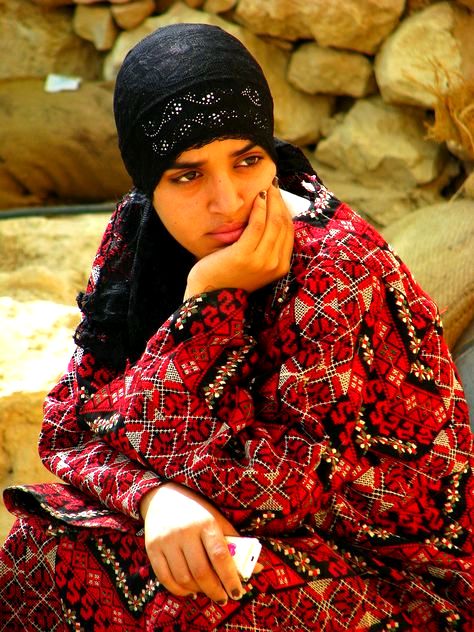Bedouin Tribe (Arabian Peninsula and surrounding regions) Clothing Facts Religion Woman : The Bedouin tribe, indigenous to the Arabian Peninsula and surrounding regions, boasts a rich cultural heritage. This article delves into their traditional clothing, religious practices, and the vital role of women in Bedouin society. Explore the fascinating customs that have shaped this nomadic tribe’s way of life for centuries.
Bedouin Tribe (Arabian Peninsula and surrounding regions) Clothing Facts Religion Woman

Bedouin Tribe (Arabian Peninsula and surrounding regions) Clothing Facts Religion Woman
Bedouin Tribe (Arabian Peninsula and surrounding regions) Clothing
The Bedouin tribe’s clothing reflects their nomadic lifestyle and the harsh desert environment of the Arabian Peninsula. Traditional clothing includes flowing robes, headscarves (keffiyehs), and agals (headbands). These garments provide protection from the sun, sand, and heat while preserving the tribe’s cultural identity and heritage.
Bedouin Tribe (Arabian Peninsula and surrounding regions) Religion
The Bedouin tribe’s religion is primarily Islam, with a strong adherence to Sunni Islam. Islamic beliefs and practices play a central role in their daily lives, guiding their moral code, rituals, and social interactions. Religion is a significant aspect of their identity and cultural heritage, shaping their customs and traditions for generations.
Bedouin Tribe (Arabian Peninsula and surrounding regions) Woman
In Bedouin society, women play essential roles as caregivers, homemakers, and keepers of cultural traditions. While traditionally confined to domestic roles, modern Bedouin women are increasingly becoming educators, healthcare providers, and contributing to their communities’ economic activities. Despite challenges, their resilience and contributions make them an integral part of the tribe’s social fabric.
Bedouin Tribe (Arabian Peninsula and surrounding regions) History
The Bedouin tribe has a rich history dating back thousands of years in the Arabian Peninsula and surrounding regions. Renowned for their nomadic lifestyle, they were skilled traders, camel herders, and warriors. Their history is intertwined with the rise and fall of powerful empires, shaping their unique cultural traditions, customs, and strong sense of identity.
Bedouin Tribe (Arabian Peninsula and surrounding regions) Culture
The Bedouin tribe’s culture is deeply rooted in their nomadic heritage and the harsh desert environment. Their customs revolve around hospitality, communal values, and respect for traditions. Camel rearing, storytelling, and traditional arts like weaving and poetry are integral to their cultural identity. The Bedouin culture embodies a strong sense of community, resilience, and reverence for their ancestral roots.
Bedouin Tribe (Arabian Peninsula and surrounding regions) Traditions
The Bedouin tribe upholds a range of cherished traditions that have been passed down through generations. These traditions include hospitality towards guests, camel racing, and the importance of the family unit. Gathering around campfires for storytelling and poetry, as well as preserving traditional arts and crafts, are also significant elements of their cultural heritage.
Bedouin Tribe (Arabian Peninsula and surrounding regions) Food
The Bedouin tribe’s cuisine is a reflection of their nomadic lifestyle and the available resources in the desert. Staple foods include dates, camel milk, and goat meat. Meals are often simple and hearty, featuring dishes like rice and meat stews. Traditional Bedouin hospitality involves serving guests generous portions of food as a gesture of respect and goodwill.
data-full-width-responsive="true">
Interesting Bedouin Tribe (Arabian Peninsula and surrounding regions) Facts
- The Bedouin tribe is a nomadic Arab ethnic group that traditionally inhabits the Arabian Peninsula, including parts of Saudi Arabia, Jordan, Iraq, Syria, and other surrounding regions.
- Bedouins are skilled desert dwellers, adapting to harsh environments and maintaining a nomadic lifestyle for thousands of years.
- The term “Bedouin” is derived from the Arabic word “badawī,” which means “desert dweller” or “nomad.”
- Traditionally, Bedouin society is organized into clans and tribes, each with its own unique customs and traditions.
- Hospitality is highly valued in Bedouin culture. It is customary for Bedouins to offer food, water, and shelter to strangers who visit their camps.
- The majority of Bedouin tribes are traditionally Muslim, and Islamic customs play a significant role in their daily lives.
- The Arabian camel, known as the dromedary, is a vital animal for the Bedouins, providing transportation, milk, and even meat.
- The traditional Bedouin tent is called a “bait al-sha’ar” or “beit al-bariid,” made from woven goat hair and providing protection from the elements.
- Traditional Bedouin clothing, such as the “thobe” for men and “abaya” for women, is designed to suit the desert climate.
- Poetry has long been a cherished art form among Bedouins, with poets highly regarded and often playing essential roles in their communities.
- The Bedouin have a strong oral tradition, passing down stories, legends, and historical events through generations.
- The traditional Bedouin diet mainly consists of dairy products, dates, and meat, reflecting their nomadic lifestyle.
- The concept of “Diyya” or blood money is crucial in Bedouin tribal justice. It involves paying compensation to the victim’s family in cases of manslaughter or murder.
- Traditional Bedouin weddings can last for days and involve vibrant celebrations, dancing, and feasting.
- Camels are an essential part of Bedouin culture, and camel racing is a popular sport among some tribes.
- The Bedouin were historically skilled traders, facilitating the exchange of goods between different regions.
- Despite modernization and changes in their lifestyle, some Bedouin tribes continue to preserve their traditional customs and heritage.
- The famous archaeological site of Petra in Jordan was once inhabited by the Nabateans, a Bedouin tribe known for their engineering and carving skills.
- In some Bedouin communities, falconry is practiced as a traditional hunting technique.
- The Bedouin have a unique system of tribal laws and customs, which they have used for centuries to govern their societies, resolve conflicts, and maintain harmony in their nomadic lifestyle.
